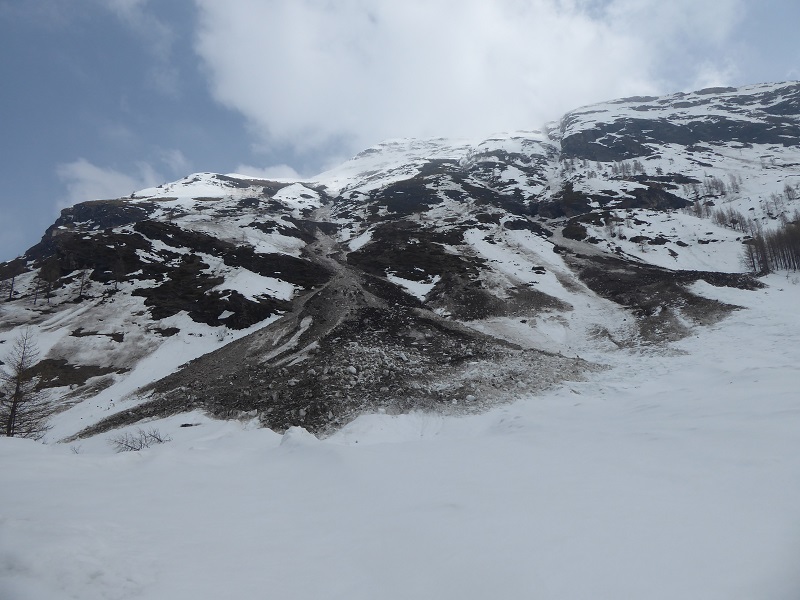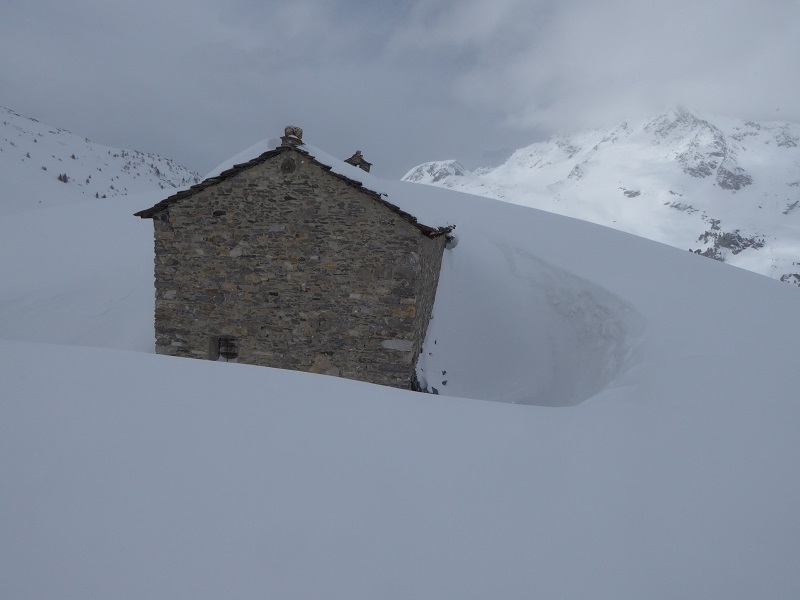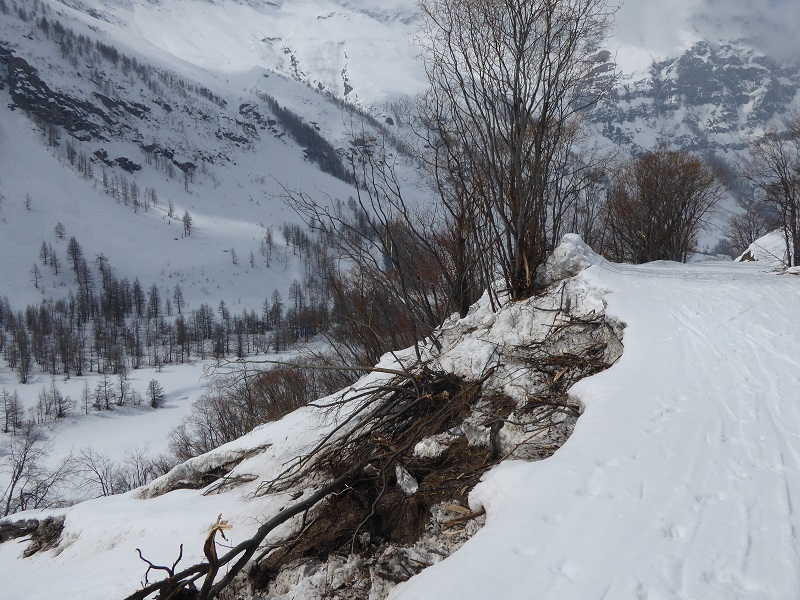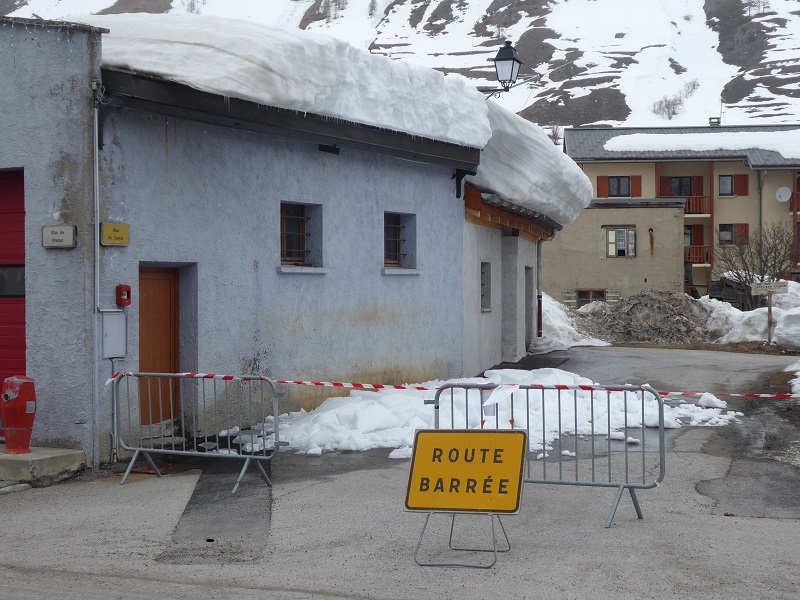
I have been in the Haute Maurienne, in the Vanoise National Park, the last week on a two week ski touring trip. There has been a lot of snow, far more than recent winters (see here), and what is left is still impressive.

Unfortunately, from the ski touring point of view, our arrival coincided with a significant thaw and we could hear the avalanches from the apartment where we stayed our first night in Bessans. Then on the ski up to the Averole Hut we witnessed half a dozen full depth avalanches. First the roar, then an amazing spectacle as the snow swept down slopes and over cliffs and then the aftermath as snow continued to flow over crags like a waterfall. Some lasted over a minute.
There was also plenty of evidence of old fresh snow avalanches which had swept across the track up to the hut.
 While green alder has evolved to bend under the weight of snow or avalanches and then bounce back other trees snap more easily. Everywhere below the tree line there are trees snapped by avalanches or the weight of snow and some have even been uprooted.
While green alder has evolved to bend under the weight of snow or avalanches and then bounce back other trees snap more easily. Everywhere below the tree line there are trees snapped by avalanches or the weight of snow and some have even been uprooted.
We, and other ski tourers, were then driven down from the hut for three days by low cloud and heavy new snow and a different type of avalanche risk. Even in the villages, which after centuries of experience are well situated and fairly safe from the threat above, the snow presents ever present danger.

The French are very quick to deal with most of these risks – on the way up the valley we were stopped for 30 minutes while helicopters were used to detonate avalanches on snow slopes threatening the road from above – even if sometimes they cannot prevent them. The main road up the valley between Modane and Termignon has been blocked for some time.
Despite all the high tech monitoring and responses – and past attitudes about humans asserting their mastery over nature which led to overdevelopment on what are now the fringes of the Vanoise National Park – the power of nature here is impossible to ignore. That has made people both better at dealing with natural hazards – I suspect the French would laugh at the time it took us in Scotland to begin to address the hazards of landslips on the Rest and Be Thankful or the flooding created in part by the grouse moors above Ballater – but also I believe has an impact on attitudes. As a local guidebook, which describes how the lower parts of Modane were flooded in 1987 after its flood defences were destroyed, puts it “On n’a jamais definitivement gagne contre la nature” (One never definitely beats nature). I think there is more respect for nature here than there is in Scotland and that has important implications for debates on conservation.
Since its far easier to control nature in Scotland’s National Parks, people who care about wild land have to argue for natural processes to be allowed to take their course. Allowing land to be wild is a human choice. Whereas in the Vanoise there is no alternative to accepting that natural processes will predominate in many places. Once you have accepted mountains create risks for locals and visitors alike, it becomes much easier to accept more minor threats to humans such as the wolves that have recolonised much of the French Alps (and not just the National Parks). The power of the natural environment can therefore make conservation arguments easier.
While we can increase the risks posed by the natural environment in Scotland (particularly flooding), we can never create the type of dangers that affect visitors and locals in bigger mountain ranges such as the Alps. It seems to me therefore that if we want people to respect, as well as admire, nature in our National Parks, the key lies in enabling people to participate in outdoor recreation for this allows people to experience the power of nature relative to ourselves. If conservation is reduced to a set of intellectual arguments alone, I don’t think that the natural environment will ever be put first in our National Parks. People need not just to experience nature, but its power and then, with respect, may come conservation.
